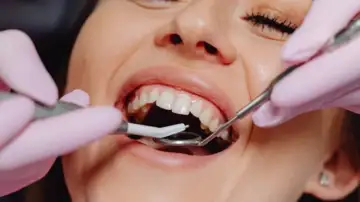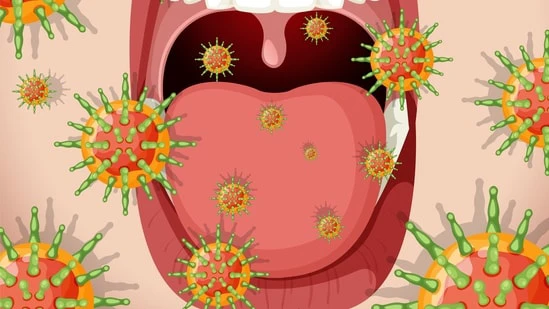A type of oral cancer that develops in the different cells of the tongue, tongue cancer is one of the most common types. In an interview with HT Lifestyle, Dr. Sachin Marda, senior consultant oncologist and robotic surgeon (cancer specialist), Yashoda Hospitals, Hyderabad said, “The most common type of tongue cancer is squamous cell carcinoma, which starts in the flat, thin cells lining the surface of the tongue.” Oral cancer: Causes, symptoms, prevention and treatment
Early warning signs of tongue cancer:
The oncologist emphasised on recognising the early red flags of tongue cancer:
1. Persistent sores: A sore or ulcer on the tongue that does not heal within two weeks is a primary symptom. Unlike common ulcers, these sores are often painless in the early stages.
2. White or red patch inside the mouth: They can develop on the floor of the mouth or the underside of the tongue. In the early stages, leukoplakia (white patches) and erythroplakia (raised, red patches) are signs of dysplasia which is a pre-cancerous condition. If left untreated, they can progress and become cancerous.
3. Pain or discomfort: Pain, tenderness, or discomfort in the tongue that persists and recurs, especially during eating or speaking, is a symptom.
4. Lumps or thickening: A lump or thickened area on the tongue that does not resolve may be a sign of cancer.
5. Difficulty in moving the tongue: It can affect speech, swallowing, or other functions due to an inability to move the tongue.
6. Unexplained bleeding: Bleeding from the tongue without any known cause is another symptom to watch for.
7. Swelling or enlarged lymph nodes: Neck swelling or neck lymph node enlargement
 Advanced symptoms of tongue cancer:
Advanced symptoms of tongue cancer:
- Difficulty swallowing or moving the tongue
- Ulcer involving the adjacent jaw
- Persistent pain in the tongue or jaw radiating to the ipsilateral ear
- Burning sensation
Uncommon symptoms that can occur with oral or tongue cancer include:
- Ear pain that may radiate to the jaw and cheeks
- A feeling of fullness in the ear
- Tinnitus (ringing in the ear)
- Jaw stiffness and/or difficulty opening the jaw
- Pain in the facial muscles or muscles used for chewing
- Burning, tingling, or sharp shooting electrical facial sensations
“Recognising the early stages of tongue cancer can significantly impact the effectiveness of treatment,” highlighted Dr. Sachin Marda.
